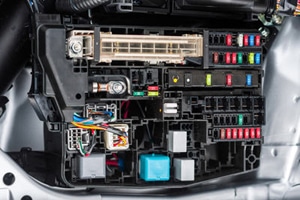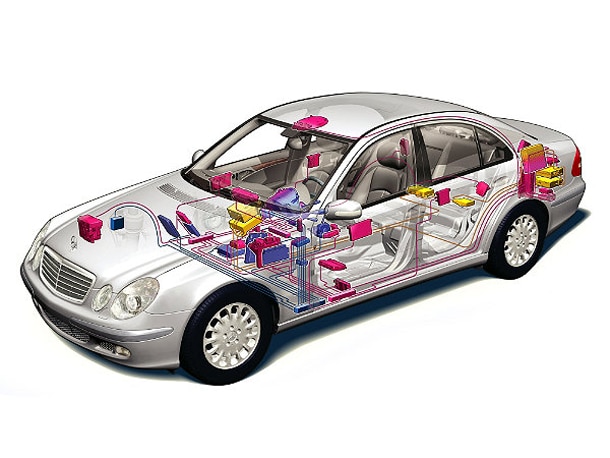





An automobile does not just run on gasoline alone. There is a very sophisticated electrical system within the car that produces the energy necessary to propel forward. Those same energy sources will also operate the power locks, windows, and other conveniences that many of us simply take for granted. It is possible that problems from time to time will develop and finding out what those challenges are can help with any maintenance or repair work needed to be done.

The first thing that needs to be inspected is the battery itself. If this experiences difficulty it will be immediately noted throughout the electrical systems. A clue to the possible problems can be a car that is not starting properly or the headlights are dimming. A voltmeter can be used to assess the battery voltage. A car should be registering between 14 to 15 V when the engine is on. Any voltage reading more or less than that indicates there is a problem with the battery. The wires connected to the battery should also be looked at. It is quite possible the only difficulty is a loose battery connection.
The alternator may be a problem. This part of the car generates electrical charge that stimulates the battery and recharges it. If the battery is not able to keep the charge when all of the electrical accessories are turned off then the alternator should be checked. A simple troubleshooting for the alternator is to check the dashboard lights. If these can turn on brightly but then begin to fade, the alternator may be the problem.
The distributor is important to the ignition and also is responsible for allocating current to the spark plugs of the car. Difficulty in starting the car or high-pitched squeals when the ignition is turned on are symptoms of distributor problems. Another warning is if the car is shaking while it is at a red light. The distributor cap can be the source of current difficulties. There should be no erosion on its surface. It is also possible that the rotor inside of the distributor is not spinning as it should, and it is throwing off the timing.
A major electronic component in every modern car is the computer. There can be one or more in the vehicle and operation is very dependent on it. The computer monitors engine operations from the various sensors provide input. If the computer breaks down the evidence can come from almost anywhere. It could be the fuel injectors, the spark plugs, or even the windshield wipers. That brings us to the point of how to best deal with electronic component trouble.
A diagnostic has to be done on the computer system and that can only be done with the right equipment. This is not a do-it-yourself project by any means. While the battery, alternator, or distributor could be replaced by a car owner who knows what to do, safety is a very serious priority. An observant car owner reading this article would recognize that some of the symptoms of electronic problems can also be attributed to the transmission or another part of the car. A trained mechanic can perform the necessary review of the electronic systems and parts of the vehicle. This person is accustomed to dealing with the high-technology of the newer models. Having such a person do the diagnosis is very much a practical decision to make.
Fading lights of the car are definitely a sign that something is going wrong and has to be taken care of immediately. The electronic system of the car should not be allowed to go without maintenance. The battery can be recharged, but sooner or later if the alternator is going bad, it will cease to work. The same is true for the distributor. If that happens then the car will stop and this could be on the open road or in heavy traffic. It is very much a question of safety to make certain that all the electronic components of your car are working properly. The diagnostic equipment that a professional automotive service center has can spot the difficulties immediately and recommended repairs and maintenance can be performed. Keeping an eye out on the warning signals will allow you to respond quickly to any problem with the car’s electrical power. That doesn’t just save money, but prevents very serious accidents from happening.